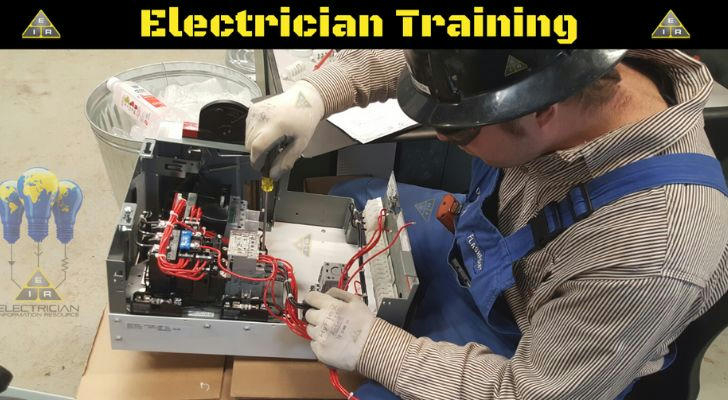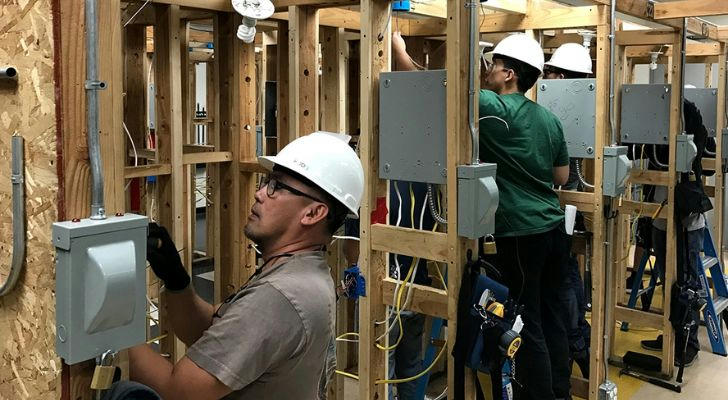Master the Skills of Electrical Work: Hands-On Training for a High-Demand Career
Electricity powers nearly every aspect of our modern lives, from lighting our homes to running complex industrial machines. Skilled electricians play a crucial role in ensuring that electrical systems function safely and efficiently. Whether you’re considering a new career or simply want to understand how electrical systems work, electrical training provides a pathway to a stable and rewarding profession.
With the right training, you’ll learn to install, maintain, and troubleshoot electrical systems, setting yourself up for a future filled with opportunities. Let’s explore what it takes to become a qualified electrician and why this trade remains one of the most in-demand professions today.

Why Pursue Electrical Training?
A High-Demand, Essential Profession
The world runs on electricity, and as technology advances, the need for skilled electricians continues to grow. From residential homes and commercial buildings to factories and smart grids, electricians are in constant demand to install, repair, and maintain electrical systems.
With growing investments in renewable energy, electric vehicles, and smart home technology, electrical professionals are needed more than ever. The demand for electricians is projected to remain strong as infrastructure expands and older electricians retire, making this a secure and future-proof career choice.
Hands-On, Practical Skills
Unlike many desk-based jobs, electrical work is highly hands-on. Training programs emphasize practical experience, allowing you to work directly with electrical components, circuits, and safety equipment. Whether you're wiring a new building, troubleshooting a faulty circuit, or installing energy-efficient lighting, each task provides a sense of accomplishment and problem-solving satisfaction.
Learning electrical work isn’t just about wires and switches—it’s about understanding complex systems and making sure they operate safely and efficiently. The more hands-on experience you gain, the more confident you’ll become in handling real-world electrical projects.
Career Stability and Growth
The need for skilled electricians spans across industries, offering diverse career paths. After completing electrical training, you could specialize in areas such as:
- Residential Wiring: Installing and repairing electrical systems in homes and apartments.
- Commercial Electrical Work: Handling larger electrical systems in office buildings, retail spaces, and hospitals.
- Industrial Electrical Work: Working with heavy machinery, automation, and high-voltage systems in manufacturing plants.
- Renewable Energy: Installing solar panels, wind turbines, and battery storage systems.
- Smart Home Technology: Setting up automated lighting, security systems, and energy-efficient solutions.
Many electricians also choose to become independent contractors or start their own businesses, offering even greater financial and professional freedom.

What You’ll Learn in Electrical Training
Electrical Theory and Safety
Understanding electrical theory is the foundation of any good training program. You’ll learn about:
- Voltage, Current, and Resistance: The basic principles of electricity.
- Ohm’s Law and Power Calculations: How to measure and manage electrical loads.
- Electrical Codes and Safety Standards: Ensuring compliance with regulations to prevent accidents.
- Protective Equipment: Using insulated tools, safety gear, and proper grounding techniques.
Safety is a major component of electrical training, as working with electricity carries inherent risks. A proper training program will teach you how to minimize hazards and ensure a safe working environment.
Wiring and Installation Techniques
A significant part of electrical training focuses on the practical skills needed for wiring and installing electrical systems. You’ll learn:
- Reading Blueprints and Schematics: Understanding electrical diagrams and layout plans.
- Installing Circuit Breakers, Outlets, and Switches: The fundamentals of wiring buildings.
- Running Conduit and Cabling: Organizing and protecting electrical wiring.
- Connecting Panels and Distribution Boards: Managing power supply to different areas.
By working with real electrical components during training, you’ll develop the confidence to handle installations efficiently and safely.
Troubleshooting and Maintenance
Electrical systems require ongoing maintenance to ensure efficiency and safety. Training will cover how to:
- Identify and Fix Common Electrical Issues: Diagnosing short circuits, overloads, and faulty wiring.
- Use Diagnostic Tools: Learning to work with multimeters, circuit testers, and thermal imaging cameras.
- Perform Preventative Maintenance: Checking systems for wear and potential failures before they cause problems.
- Work with Smart and Automated Systems: Troubleshooting modern technology like smart meters and IoT-connected devices.
Career Opportunities for Electricians
After completing electrical training, a variety of career paths become available, including:
- Apprentice Electrician: Gaining real-world experience under a licensed electrician.
- Journeyman Electrician: Working independently on residential or commercial projects.
- Master Electrician: Supervising large-scale electrical installations and managing teams.
- Industrial Technician: Handling electrical systems in factories and power plants.
- Renewable Energy Specialist: Installing and maintaining solar and wind energy systems.
Electricians also have the opportunity to work in union positions, government contracts, or even start their own businesses, giving them control over their career growth and earnings.
How to Get Started
To begin a career in electrical work, look for a training program that combines classroom learning with hands-on experience. Many vocational schools, technical colleges, and apprenticeship programs offer structured training that covers both foundational knowledge and practical application.
Some key factors to consider when choosing a program:
- Accreditation: Ensure the program is recognized by industry standards.
- Hands-On Training: Look for programs that offer real-world practice with electrical components.
- Pathway to Certification: Many programs prepare you for licensing exams required to work as an electrician.
- Job Placement Assistance: Some programs help graduates find apprenticeships or entry-level positions.

Final Thoughts
Electrical training is an excellent investment in a career that offers stability, growth, and high demand. Whether you’re interested in residential, commercial, or industrial electrical work, mastering this trade opens the door to numerous opportunities.
Supporting Data and Industry Reports
- Job Growth: According to the U.S. Bureau of Labor Statistics (BLS), employment for electricians is projected to grow by 8% from 2020 to 2030, faster than the average for all occupations.
- Salary Expectations: The median annual wage for electricians was $60,040 in 2022, with experienced professionals earning significantly more in specialized fields.
- Renewable Energy Expansion: Reports from the International Energy Agency (IEA) indicate that by 2030, renewable energy installations will require a 50% increase in trained electrical professionals, making this a future-proof career choice.
If you enjoy working with your hands, solving complex problems, and being part of an essential industry, electrical training could be the perfect path for you!
